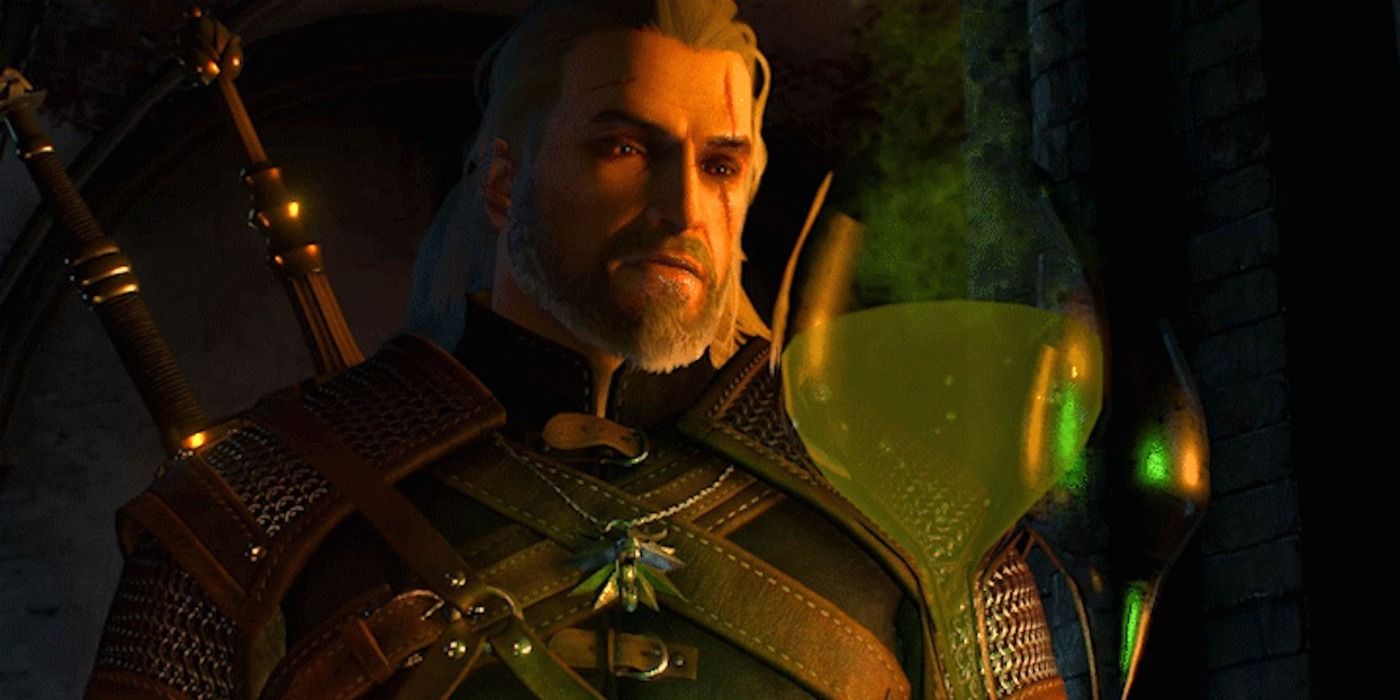The Witcher 3: Wild Hunt has a variety of helpful abilities to use in Geralt’s journey in The Continent and Alchemy is one of them. The variety of uses for alchemy ranges from healing potions and weapon enhancements to explosives and more. There are a few differences in The Witcher 3: Wild Hunt versus other games and we’re here to help navigate through them to make Alchemy second nature while traveling in The Continent.
Be aware that Alchemy in The Witcher 3: Wild Hunt is not exactly like Crafting. A big change from crafting is the need for a location to craft. For Alchemy, Geralt can create anything in his Alchemy inventory anywhere on The Continent but in crafting he needs to go to a specific Blacksmith/Armorer to create a specific piece. With that in mind, let’s see what it takes to be the next Alchemy master of The Continent.
Alchemy Crafting 101 in The Witcher 3
Alchemy is a very straight forward in The Witcher 3: Wild Hunt. Recipes can be gotten through various methods such as vendors, chests, and quests among the more common methods. Upon getting a recipe, it will store itself in Geralt’s Alchemy inventory, which can be seen in the game’s menu next to the Glossary. On the Alchemy screen, the recipes will be on the left side of the screen, the required ingredients for the recipe will be in the middle of the screen, and the effect/description of the item selected will be on the right. Upon getting the needed amount of materials, Geralt can craft the item without the need for someone to craft it for him as observed by Blacksmiths/Armorers.
Alchemy Materials in Witcher 3
The method of creating something in Alchemy is similar to crafting where Geralt needs a specific amount of materials to create the given recipe. Each material is represented by a box and inside the box, the left number is the total amount of materials Geralt has and the right is the number needed to craft. If a piece is missing, players can Pin the material to make it easier to find at vendors. At the vendors, the material will show as a highlighted box signaling it’s needed for the recipe it was pinned for. Materials can be gotten in various ways just as recipes can but can also be gotten by killing enemies as well so make sure Geralt gets those Ghouls as well as they can have valuable materials too.
Alchemy Uses in Witcher 3
The uses for Alchemy are vast and can be summed up easily concerning the menu items in the Alchemy menu. Here they are as follows:
- Alchemy Substances: Various ingredients used in more powerful alchemy recipes or used to enhance Geralt (Ex. Mutagens)
- Alcohol: Used to restore Geralt’s bombs, to destroy monster hives, and potions while he’s meditating.
- Bombs: Bombs are capable of dealing damage in various methods such as poison, shrapnel, fire, etc. Can destroy monster hives and also deal status effect depending on the type of bomb.
- Decoctions: These Alchemy recipes are special whereupon using them, Geralt gains the powers of the enemy they come from. For example, a Werewolf Decoction makes Geralt not lose any stamina while running, jumping or sprinting which are traits a Werewolf has. Generally to create these types of Alchemy recipes means you have to destroy the type of enemy you wish to gain the powers from because the materials drop from those specific enemies.
- Oils: If Geralt is aware that a particular fight is against a particular enemy, oils are a way to add extra damage to his swords by imbuing them with the oils of those enemies.
- Potions: These give Geralt special abilities or helps him heal to some extent. Examples can be allowing him to see in the dark, removing toxicity or increasing his reflexes.
The Witcher 3: Wild Hunt is available for Playstation 4, Xbox One, Nintendo Switch, and PC.
